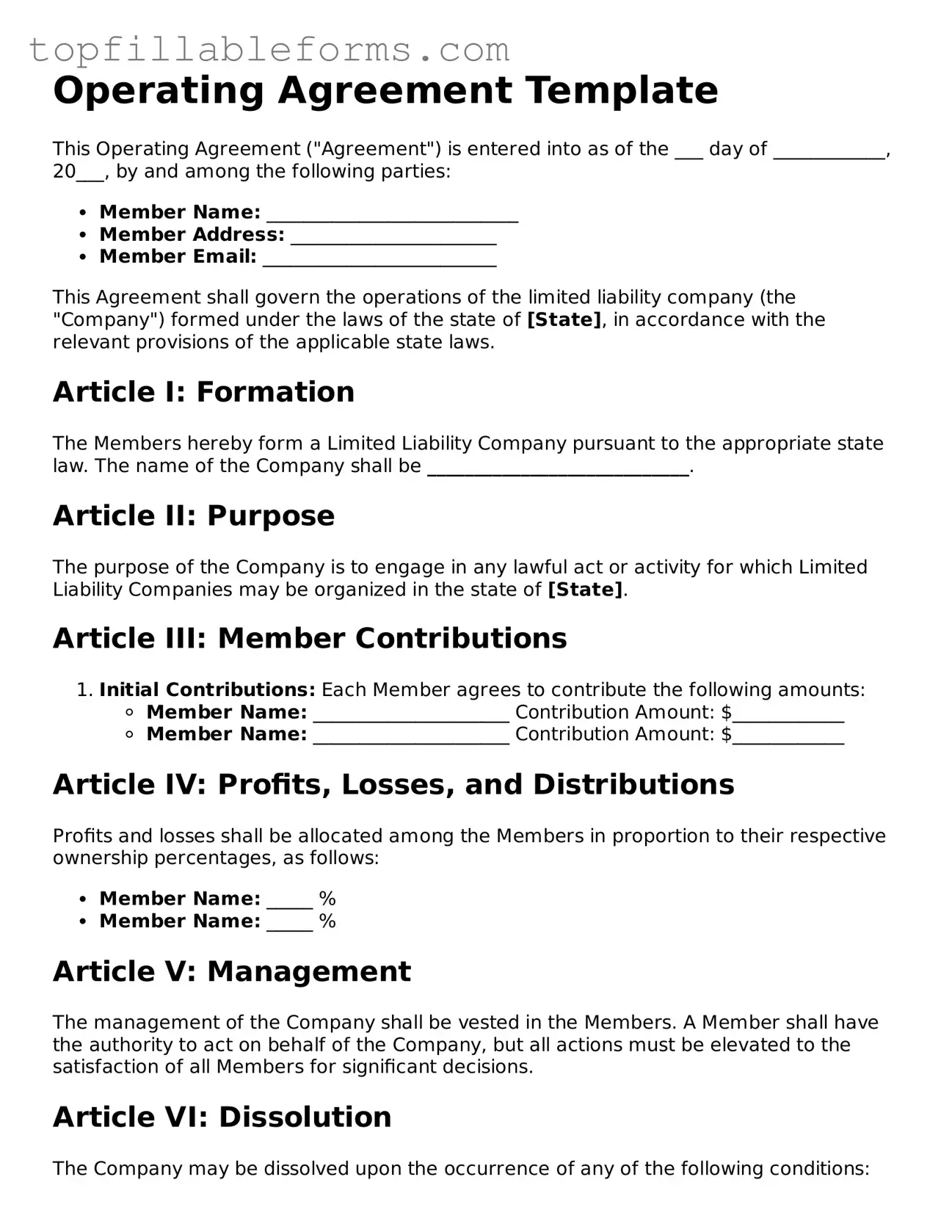Operating Agreement Template
This Operating Agreement ("Agreement") is entered into as of the ___ day of ____________, 20___, by and among the following parties:
- Member Name: ___________________________
- Member Address: ______________________
- Member Email: _________________________
This Agreement shall govern the operations of the limited liability company (the "Company") formed under the laws of the state of [State], in accordance with the relevant provisions of the applicable state laws.
Article I: Formation
The Members hereby form a Limited Liability Company pursuant to the appropriate state law. The name of the Company shall be ____________________________.
Article II: Purpose
The purpose of the Company is to engage in any lawful act or activity for which Limited Liability Companies may be organized in the state of [State].
Article III: Member Contributions
- Initial Contributions: Each Member agrees to contribute the following amounts:
- Member Name: _____________________ Contribution Amount: $____________
- Member Name: _____________________ Contribution Amount: $____________
Article IV: Profits, Losses, and Distributions
Profits and losses shall be allocated among the Members in proportion to their respective ownership percentages, as follows:
- Member Name: _____ %
- Member Name: _____ %
Article V: Management
The management of the Company shall be vested in the Members. A Member shall have the authority to act on behalf of the Company, but all actions must be elevated to the satisfaction of all Members for significant decisions.
Article VI: Dissolution
The Company may be dissolved upon the occurrence of any of the following conditions:
- The decision by Members holding more than _____% of the Membership Interests.
- By law or regulation requiring the dissolution of the Company in the state of [State].
Article VII: Miscellaneous
If any provision of this Agreement is found to be invalid or unenforceable, the remaining provisions shall continue in full force and effect.
This Agreement shall be governed by and construed in accordance with the laws of the state of [State].
IN WITNESS WHEREOF, the Members have executed this Operating Agreement as of the date first above written.
- Member Signature: _____________________ Date: ________________
- Member Signature: _____________________ Date: ________________

